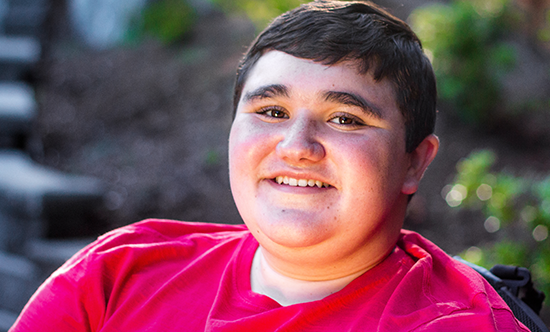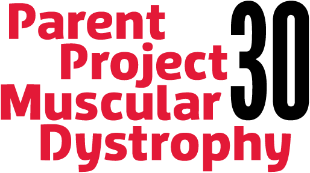
Last week we were joined by Amber Sapp, parent, and Leona Filis, attorney, to discuss planning for your family’s future in regards to benefits and finances. Although these subjects can feel overwhelming, Amber and Leona did an incredible job breaking down this information to help your family find a solution that works best for you or your child living with Duchenne.
If you were unable to join us live, the recording is now available. Given the complexity of the topics discussed by our panelists, we have also produced an FAQs which captures questions raised from the community regarding navigating benefits and finances.
Webinar Recording:
Family Friday Recording: Independent Living
This webinar was followed by a Family Friday session on PPMD’s Facebook page to discuss facilitating independence in teens and adults living with Duchenne. Pat Moeschen, PPMD Adult Advisory Committee (PAAC) advisor, moderated an insightful discussion with Gretchen Egner, parent, and Austin Leclaire, PAAC member, about ways to encourage responsibilities in teens and adults, and plan for future independence in your daily life regardless if you are living at home or not.
Frequently Asked Questions (FAQs):
What is a Medicaid Waiver Program?
These are programs created by your state and federal government to offer support and services to individuals with disabilities. Based on each state’s priorities/participation, there are different programs that offer different services, which also have different eligibility requirements.
As a parent, when should I sign my child up for a Medicaid Waiver Program?
Unfortunately, and depending on the state you live in, the wait time to receive these benefits varies and can be up to several years. It is recommended to put your child on the interest list to receive benefits shortly after receiving the diagnosis, even if they will not require services for several years. If you receive notification for an appointment to discuss eligibility at a time where your child may not qualify medically, you can ask to be put back at the bottom of the list and continue waiting.
Can my child with Duchenne be denied benefits due to my/my partner’s income?
Programs vary by state, but typically waiver programs waive certain eligibility requirements that are with traditional Medicaid. Your household income may not be a factor, however, your child with Duchenne’s income and assets will affect eligibility to benefits.
What type of services are typically included in Medicare Waiver Programs?
Programs vary by state, but a few examples are respite care, adaptive aids, adjunct support services, minor home modifications, transition assistance services, financial management services, and specialized therapies.
Can I receive reimbursement for my employer-provided insurance premium if my child under 18 qualifies for Medicaid?
If someone in the household that your insurance covers who also receives Medicaid, you may receive monthly reimbursement checks for your entire insurance premium. To see if your state participates in premium assistance programs, please click here.
How do I protect my child’s benefits after they turn 18?
You can protect their eligibility for SSI (Supplemental Security Income) and Medicaid benefits by not having any assets in their name. This can be done through supplemental needs trusts, such as first-party special needs trust, third-party special needs trusts, or 504 A (ABLE) accounts.
What is the maximum income/assets a person with Duchenne can have to keep government benefits?
$2,000 total
What is a 1st Party Special Needs Trust (Supplemental Needs Trust)?
1st Party Special Needs Trusts (Self Settled Trusts) is one way for a person with a disability to receive income without losing eligibility for benefits. This type of trust is recommended if you spend the money in the account every month and are not using it to save (example: child support payments). This is because 1st Party Special Needs Trusts have a payback provision for Medicaid – when the beneficiary passes away, any money left in the trust has to be used to pay the state back for any Medicaid money spent on the beneficiary’s behalf.
What is a 3rd Party Special Needs Trust (Supplemental Needs Trust)?
3rd Party Special Needs Trusts are more commonly utilized when financially planning for the future. When managing living wills, retirement accounts, or any other assets in which a successor would be your child living with Duchenne, this type of trust would protect their government benefit eligibility. The initial trustees (most often parents) can also put protections in place to keep funds safe and hold those accountable to ensure the person with Duchenne is taken care of.
What type of expenses can be paid from Special Needs Trusts?
Health and dental treatment, equipment, and services not otherwise covered by benefit programs, medical insurance premiums, supplemental nursing care, supplemental dietary needs, eyeglasses, and quality of life expenses such as travel, vacations, and entertainment.
How do I open a Special Needs Trust?
Setting up a trust does involve a monetary investment for opening the account in addition to lawyer fees. For this reason, it is recommended you seek advice regarding cost and need based on assets beforehand. There are ways you can open a Special Needs Trust yourself, but it is typically preferred to work with an attorney with experience in trusts and estates. These attorneys can provide guidance and recommendations for how funds will be distributed to successors and advise on what type of expenses are eligible without the risk of losing government benefits.
What is a 529A Account, or ABLE Account?
This is an option for saving money to pay certain disability expenses without fear of exceeding the Medicaid individual resource limit.
What type of expenses can be paid from a 529A (ABLE) Account?
Qualified expenses include education, housing, transportation, employment training and support, assistive technology and related services, personal support devices, health prevention and wellness, financial management and administrative services, legal fees, and other expense that may be identified from time to time by the IRS.
Can I/my child have both a Special Needs Trust and 529A (ABLE) Account?
Yes, you can utilize both types of accounts at once.
Who can deposit funds into 529A (ABLE) accounts?
Anyone can directly deposit funds – friends, family, and even employers. The annual limit is $15,000 per year, with the first $100,000 being protected from the Social Security Administration.
How can I open a 529A (ABLE) account?
Each state has their own 529A (ABLE) account program.
What is the best way for relatives who wish to gift money or include inheritance in their will to a person with Duchenne?
Relatives can gift money to a person with Duchenne with 529A (ABLE) Accounts or 3rd Party Special Needs Trusts to protect government benefit eligibility. Family members who may want to leave a financial inheritance to a person with Duchenne may include language in their will (or an addendum to an existing will) directing the sum be placed in a “to be established trust” which can be created at the time of need to avoid incurring the expensive of creating a Special Needs Trust.
Resources:
- Leona Filis has her own YouTube channel, with a library of helpful videos diving into benefits, guardianship, and more.
- PPMD has a webpage dedicated to state-by-state resources. If you have additional questions about navigating Medicaid waivers or have any resources you would like to share, please reach out to Brian Denger from PPMD.
- For more in-depth one on one help, PPMD partners with The Duchenne Family Assistance Program who can help walk you through the process:
- Duchenne Family Assistance Program
This program is a partnership between Little Hercules Foundation and Team Joseph. Through their Duchenne Family Assistance Program, Little Hercules Foundation provides case management services to patients and caregivers who have been denied access to treatments, clinical care, equipment, and social services. Team Joseph provides financial assistance for families procuring necessary medical equipment, travel assistance for those who travel long distances for expert care or clinical trial screening/visits, and support to attend educational meetings and conferences for those wishing to better understand Duchenne, standards of care, and the therapeutic landscape.
- Duchenne Family Assistance Program



 by: Parent Project Muscular Dystrophy
by: Parent Project Muscular Dystrophy

